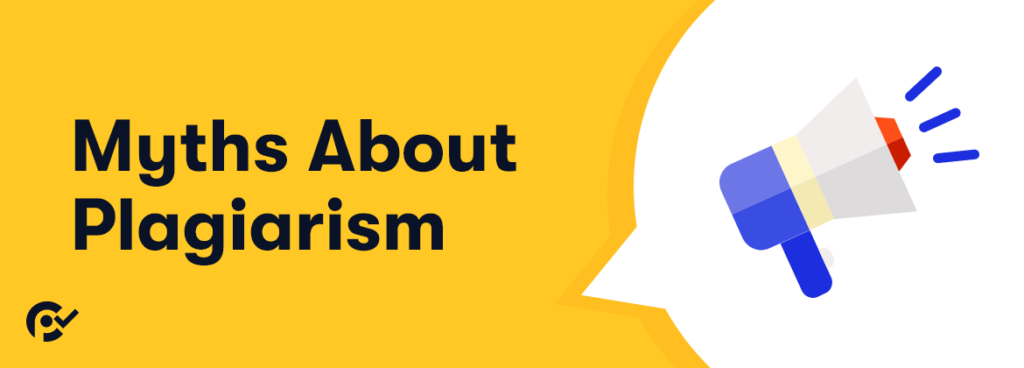
Myths About Plagiarism
Plagiarism has been one of the most discussed topics on various platforms for a long time. You might have seen people around you talking about it and sharing their views. Whether you are in the classroom, workplace, or working online, you will come across this topic somehow. Everyone in this discussion may have a different opinion and understanding of the topic. However, the accuracy of their information regarding plagiarism isn’t guaranteed. The lack of information about plagiarism may lead such people to commit this crime unintentionally or unwillingly. Many false beliefs are attached to the term, and it is essential to address them adequately to save people from any unpleasant situation.
So, today we are going to discuss a few myths about plagiarism that are roaming around and why they are false.
Going through this article until the end is suggested to get familiar with the topic appropriately and avoid plagiarism, more importantly.
No One Can Find It
One of the biggest misconceptions that many people have in their minds is that plagiarism can’t be found. This is entirely a myth but proves as a great trap, especially when a person is desperate and needs to submit the work in a limited time. Plagiarists think that while copying others’ work, they won’t be caught, or no one can come to know about this piracy. They stay in the heaven of fools until they get caught, and their whole career and fame get into dust. You must understand that an advanced plagiarism checker can find the duplication in a few instances. Moreover, these plagiarism detectors are smart enough that they can track down the source of any text instantly.
Plagiarism Won’t Hurt Someone
Using Someone’s work or words isn’t stealing at all. This is the most used phrase from the plagiarists. Such people must realize that the authors of articles or textual information have invested a lot of time in researching and writing the content, and using their creations without any permission will be disrespectful. Furthermore, the information duplicated from unreliable sources may include false data, and using it is simply spreading wrong information that may cause major consequences.
Data Spinners Can Help
In the same vein, many people believe that the content they get from a data spinner tool won’t be highlighted if checked by any plagiarism checker. You should keep in mind that the advent of modern plagiarism checkers makes it no uphill task to grab the duplication in writing on time. Moreover, the text you receive from data spinner tools may have disturbed structure, false use of grammar, or inappropriate vocabulary, making it suspicious. Your reader can easily find that the content isn’t written by a writer, and it’s created with some AI tool.
Data On the Web can be Used Freely
Many individuals consider that since the Internet is a free platform and open to everyone, it is not essential to cite its data. There are some norms and regulations attached to the use of web information. The first thing that people must know is that the information on the web is the sole property of its creator, and no one can use it without authorization. Proper citation methods must be followed when referencing sources. If there is any confusion about how to cite sources, people can use a free citation generator to avoid legal consequences.
Self-plagiarism Is Legal
Many writers have made it a tradition of reusing their published or written work in a fresh article. This is a clear example of self-plagiarism. These plagiarists claim that they are restating their own information, and nothing has been taken from others’ work; that’s why it won’t fall under plagiarism. Well, this statement is completely wrong, and duplication of your own published work will be considered plagiarism, and you may have to bear the penalties for committing self-plagiarism like any other type of plagiarism.
At the End
Plagiarism is an illegal and punishable offense; it doesn’t matter how and where it is committed. The best way to prevent it is by discussing it with professionals and getting the best idea about it. The myths we have mentioned above are some common beliefs that most people have about plagiarism. It is the duty of teachers and administrators to go beyond harshly written guidelines and educate their people about this unethical act and how they can avoid it. They should also help their students and employees learn the adequate way of citing a source to save themselves from the charges of duplication. Sharing this blog with them will also be a great approach, as it includes all the myths about plagiarism. The use of advanced online facilities like plagiarism checkers will be advantageous in detecting piracy without adopting any manual efforts.







